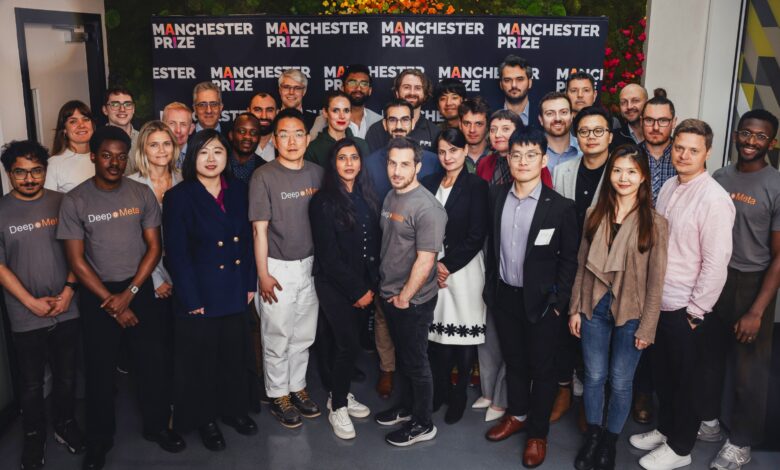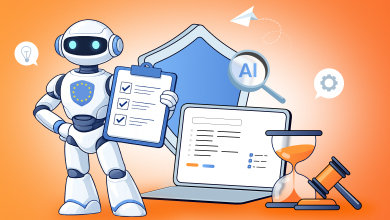
Every week I see AI being applied in ways that would’ve seemed unthinkable just a few years ago. It’s helping to diagnose and treat diseases faster than ever, giving us new tools in the fight against climate change, and now, helping us to make energy cleaner and greener.
In January 2025, the Prime Minister unveiled the AI Opportunities Action Plan: a blueprint to accelerate the use of AI across the economy. The plan, backed by £2 billion in funding from the recent Spending Review, includes initiatives such as AI Growth Zones, an AI Energy Council, and a Sovereign AI Unit to drive innovation in the critical areas of health, public services, and energy.
AI will play a key role in optimising the energy grid, accelerating the transition to renewable sources, and enhancing efficiency. This strategic focus not only strengthens the UK’s position as a leader in AI, but also aligns with its broader goal of clean power by 2030, and reaching net zero by 2050.
The planet is on a dangerous path, and we are now at a critical juncture in the journey to net zero. Global emissions need to halve by 2030 compared to 1990 levels, if we are to stay on track to meet climate targets. At the same time, electricity production will need to double by 2050 to meet the demands of an electrified economy. Innovative solutions to support clean energy adoption are essential.
There is no single answer to the challenge of transitioning the economy to net zero. A wide range of solutions will be needed across every part of how we live, work and play. However, the increased focus on AI, whilst adding the challenge of increasing power requirements for data centres, is also promising for the sector.
Polaron, the winner of the first Manchester Prize – the UK government’s prize for AI for public good – attests to this. The team developed an AI tool that creates advanced materials for EV batteries, completing in days what state-of-the-art physics-based research could do in 50 years. Since spinning out from Imperial College London less than 18 months ago – Polaron has increased the energy density of batteries by 10% – the equivalent of an extra 20 miles of range for an average EV. This technology is now being adopted by EV and battery manufacturers.
Although there has been rapid progress in AI, we have only begun to unlock its full potential to support a cleaner, more efficient energy system. This is where the second round of the Manchester Prize comes in.
This year, the prize is rewarding UK-led AI breakthroughs that accelerate action towards the UK’s clean energy goals. 10 finalists were announced in June, each of whom has received £100,000 to develop their solutions. The most promising will go on to win the £1 million grand prize in 2026.
One of the most inspiring aspects of the prize – and one the reasons it has been so exciting to judge – is the sheer variety of innovative solutions and approaches that are competing. Each team is coming at the problem from a unique standpoint, applying AI tools in creative ways, and striving for real-world impact in the near term.
As a judge, I have seen the ideas first hand, from technologies to support a more reliable grid, to innovations that limit emissions from industrial processes. While teams come from all corners of the UK, they share a common mission: to accelerate action towards the UK’s clean energy goals.
One of the teams, BiofuelAi from the University of Surrey is one such example. It brings AI and machine learning to the biofuel industry, optimising complex, variable processes in real time.
Carbon Re is another competitor. Its AI process control software cuts emissions in cement production. Acting like self-driving for industrial plants, Carbon Re optimises industrial processes, helping manufacturers cut both costs and carbon while transitioning to low-carbon operations.
Another example is Green Loops from the University of Wolverhampton, in partnership with ABCircular GmbH Berlin: a solution that holds the quest for a circular economy at its core.
Other solutions range from a non-intrusive system that uses AI to design bespoke panels that turn bricks into radiators that warm homes from the outside in, to AI-enabled heat-mapping drones to help councils and housing associations pinpoint social housing stock in need of insulation upgrades. Technology to help the logistics industry cut its emissions, and AI to ensure the energy grid remains balanced at all times as more of our energy comes from wind and solar.
These innovations show how we can harness AI in a range of different ways to tackle arguably the world’s most pressing challenge. Tackling this ever more urgent problem will require a range of different solutions; no single approach will be enough. The wide mix of innovations being developed by the Manchester Prize finalists provide hope for climate resilience across different sectors, accelerating the transition to a cleaner energy future.
With world-class research, a thriving start-up ecosystem, and the talent needed to scale new breakthroughs, the UK is uniquely positioned to lead the next wave of AI-powered clean energy solutions.



